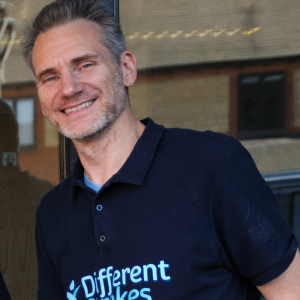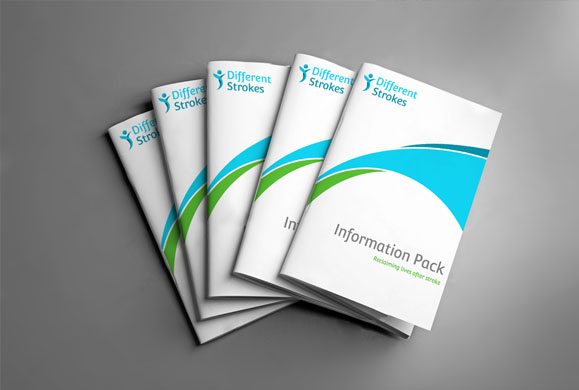
Austin Willett, Chief Executive Officer, Different Strokes
“Stroke is still thought of us something that only happens to elderly people. Yet more than 25% of strokes happen to people who are of working age and younger, and in the specific 35-54 age range, strokes are increasing by approximately 2% per year. Despite this, when stroke is portrayed in the media it is almost always in the context of an older person suffering a stroke, and this further entrenches the view that it is something that is not experienced by younger people. At Different Strokes we have helped to tackle this misconception, and a recent Stroke Association television advert also featured a number of young stroke survivors. ” said Austin Willett, Chief Executive Officer at Different Strokes, a stroke support organisation from the UK.
SAFE: What is one issue related to the life after stroke in your country that you think needs special attention?
AW: Clearly though there is still a very long way to go, demonstrated by the results of a survey which we commissioned this year. In this survey, 84% of people thought that only 1 in 50 strokes happened to people under the age of 65, while it is actually more than 1 in 4.
The marginalisation of stroke survivors is an ongoing problem. Stroke is especially isolating for working age people; often with young families to support and relying on employment but suddenly unable to work. Ensuring that there is much greater recognition of younger stroke is, for us and the people we support, the most important issue.
SAFE: What would be the solution, i.e. what is your organisation’s position regarding this issue?
AW: There are no easy answers to this, and because stroke affects everyone differently there is not a solution that will work for all stroke survivors. But broadly speaking, we would like to see:
- Much greater understanding of the prevalence of stroke in younger people. Where there is ignorance about this issue, this can lead to misdiagnosis. Too often is a stroke among this age group classified as a ‘brain bleed’ or something other than stroke. This can lead to people waiting for extended periods of time before receiving appropriate stroke rehabilitation, or not receiving any at all.
- Rehabilitation which focuses more on the specific needs of younger stroke survivors. Younger stroke survivors must learn to accept newfound physical, emotional and cognitive limitations, as well as changes to virtually every aspect of life – wellbeing, perceived quality of life, communication, mobility, employment, independence, social life and relationships. Rehabilitation needs to reflect this, and not merely be focused on the basic functions of self-care which permit a stroke survivor to return home.
- Recognition that ongoing recovery of stroke is a long-term, and sometimes lifetime, process. Too often we have heard stroke survivors being told that they have plateaued to explain why their post-stroke rehabilitation has been discontinued, and a further myth about stroke is that after 6 months post-stroke ongoing recovery will cease. But post-stroke recovery trajectories vary and shift over time, and at Different Strokes we see stroke survivors of working age return to work and rediscover skills and interests which buck their disabilities long after their stroke.
SAFE: Please tell us more about your organisation.
AW: Different Strokes is a registered charity which supports younger stroke survivors and their families, primarily of working age (18-65). This group has historically been overlooked, receiving limited rehabilitation and struggling to find the emotional support combined with the practical help required to help reclaim their lives. Different Strokes was founded in 1996 to address this, and over the last 23 years has made huge steps in raising awareness of young stroke.
Amongst the services we provide are a network of peer support and exercise groups, an online support group, a telephone information line, printed materials, and age appropriate resources for children whose Mum or Dad has had a stroke.
We also seek to raise awareness of issues that specifically effect younger stroke survivors and will work collaboratively with third parties where it is in our mutual interests to do so.
The ethos of Different Strokes is one of ‘survivors supporting survivors’, with peer support running through all that we do. Half of our staff and trustees are stroke survivors, as are the vast majority of volunteers who run local groups and support us in other ways.
We receive no funds from central or local government, so have to raise all our funds from individual donations, fundraising events, legacies, grants from trusts and foundations, corporate support, and self-generated income such as through our online shop.
*Image source: https://differentstrokes.co.uk/stroke-information/information-pack/





